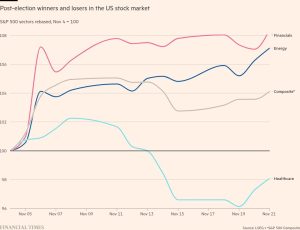Post-Brexit red tape proves a tangle for UK jewellery exhibitors
Unlock the Editor’s Digest for free
Roula Khalaf, Editor of the FT, selects her favourite stories in this weekly newsletter.
In the wake of Brexit, UK independent jewellery brands are reconsidering the benefits of exhibiting their wares at shows across the English Channel. Some smaller players are already being caught out by customs bills and differing hallmarking requirements.
London-based fine jeweller Tomasz Donocik reports that French customs agents arrived and issued on-the-spot fines to exhibitors without the correct paperwork at a Paris show earlier this year. The penalties, amounting to 10 per cent of the value of jewellery on display, were issued to exhibitors who lacked an ATA carnet — an international customs and temporary export-import document that works like a passport for goods.
Donocik was exhibiting at Goldrush, a wholesale jewellery show that takes place during the twice-yearly Paris Fashion Week. Other parallel events, such as NouvelleBox and Melee The Show — which comes to Paris from New York — have mushroomed, drawing in international jewellers seeking to benefit from the increased international buyer footfall to the city.
It did not take long for news of the appearance of French customs officials at shows to reach Paul Alger, international business director at the UK Fashion and Textile Association. He is always on the ground in Paris during trade shows and fashion weeks, and has assisted both UK jewellers and apparel brands that have encountered problems with post-Brexit trading arrangements.
“This is not straightforward for non-French companies,” he explains. “For [UK] jewellers, even if they are hand-carrying pieces, I’d encourage them to use an ATA carnet and declare their goods at [London St Pancras station] and on the Eurostar train before they arrive in Paris. It’s not perfect, but it is the only official route for samples.”
Darren Hildrow, founder and organiser of NouvelleBox, is determined not to get caught out by another surprise customs visit, having experienced one in March. Since then, he has worked with a French adviser to create a comprehensive document that follows Alger’s suggestions. With information aimed at both his EU and non-EU jewellery exhibitors, the document outlines French customs formalities and hallmarking requirements, and provides instructions on documents exhibitors should have to hand on their booth.
“For years, I carried a carnet when taking collections to Japan or America,” says Donocik. “Essentially, it prevents you from selling. It needs declaring and signing at the point of exit and entry — which is not always so easy when travelling on the Eurostar. And, if it isn’t done properly, you pay a penalty.” He says an ATA carnet, which costs about £350 and is valid for one year, details all the countries he is visiting and the product he intends to carry, and specifies how many trips he intends to take.
When Donocik participated in an auction organised by Christie’s in Paris in 2021, he found that selling, rather than just showing at an exhibition in France, was even more problematic. “You need a French hallmark to sell in France and special paperwork to do with VAT,” he says. “To obtain a French hallmark, you need to work with a third party and a French agent. There are strict rules and — given that we are such a small business — I’ve decided that, in the future, it is not worth the hassle for just one or two individual transactions.”
Since Brexit, France no longer recognises British hallmarks and, unlike the UK, is not a member of the separate Hallmarking Convention, which can accept jewellery with the international Common Control Mark (CCM).
Will Evans, director of the Goldsmiths’ Company Assay Office in London, believes that urging EU countries to accept the CCM could be a solution. (Some EU nations, such as the Netherlands, Italy and Denmark, but not France, are Convention members.)
“The Hallmarking Convention has a working group on EU engagement, of which I am a member, and we are exploring mechanisms by which this may be possible,” says Evans.
When London-based artist jeweller Ute Decker showed in Paris as part of the contemporary jewellery triennial Parcours Bijoux last October, she discovered that hallmarking complicated matters and that the expense and logistics of an ATA carnet and shipping were also problematic.
“A gallery invited me to show in Paris, but I looked at the costs of export directly from the UK and it was economically not worth it,” she says. “Shipping to France or Italy costs four or five times what it does elsewhere. Many French galleries have written off British artists and we are losing out. Also, galleries can be shut down when the customs officers come in and check . . . documentation and look at every piece of jewellery.”
Decker says she received conflicting advice on whether applying for a French hallmark would be beneficial. “I find that with these issues everyone knows a little, but there isn’t any clarity.”
#PostBrexit #red #tape #proves #tangle #jewellery #exhibitors




